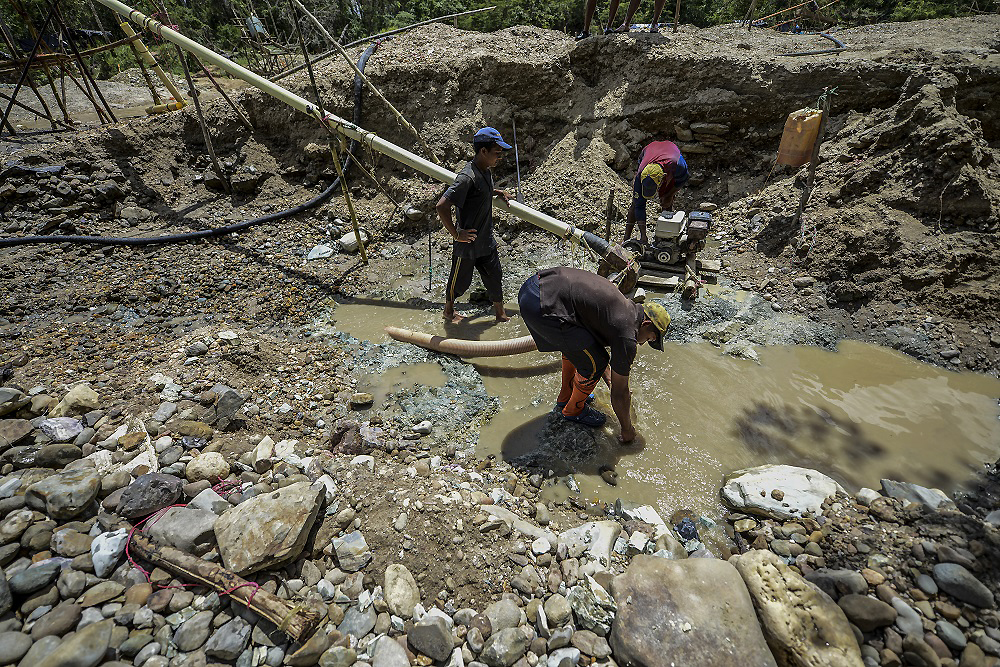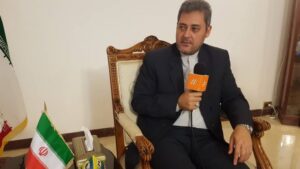
(Energy Analytics Institute, 13.Aug.2020) — Venezuela’s President Nicolas Maduro is doubling down on earning money through illicit means where sanctions have less of an impact while also doubling down on alliances with autocratic regimes whether its Cuba, Iran, Russia or others, US Deputy Assistant Secretary for Cuba and Venezuela in the Bureau of Western Hemisphere Affairs, Carrie Filipetti, said 13 August 2020 during a webcast hosted by the Atlantic Council.
Strong relations with European countries are needed to monitor gold mining practices that keep the Maduro regime in power, she added.
“This requires a comprehensive international approach to addressing Maduro’s continued usurpation. It’s not something the US can do alone. It’s not something the Venezuelan people can do alone. We really do need our European partners to step up to the plate to increase the number of sanctions, to make sure they are protecting the assets for the Venezuelan people and to not fall for the tricks the Maduro regime tries to play,” Filipetti said.

Venezuela is blessed with the world’s largest accumulation of heavy and extra-heavy crude oil (EHCO) located in the Orinoco Heavy Oil Belt, as known as the Faja, and is also home to large accumulations of natural gas and other natural resources such as steel and gold.
Nearly two decades of so-called socialist rule first under late Venezuelan President Hugo Chavez Frias between 1999-2013 and then under Maduro — who assumed power in 2013 after Chavez’s death and who has ruled since with an iron fist — has lead to continued economic, financial, political uncertainties as well as a growing humanitarian crisis which has already seen more than 5 million citizens flee the South American country to countries near and far in the Americas from Colombia to Brazil and Argentina, as well as others in North America and Europe, according the data from the United Nations (UN).
An epic decline in Venezuela’s oil production has seen output fall from peaks of slightly more than 3 million barrels per day achieved on numerous occasions in the past two decades to less than 400,000 barrels per day, based on figures from second sources and direct communications with government officials and as reported by the Organization of Petroleum Exporting Countries or OPEC in its August 2020 Monthly Oil Market Report (MOMR).
Venezuela’s oil revenues generate the bulk of the country’s foreign export earnings and in lieu of drastic declines in this income due to falling production, exports and commodity prices, the country’s leaders have turned increasingly to illicit activities from narco-trafficking, illegal gold mining and fuel contraband, among others to generate income for their longevity.
“Border security is very important as Venezuelan gold moved to Colombia or Brazil or other countries can be exported as gold from those countries in the region,” Filipetti said.
A number of non-state groups now operate in Venezuela including military members from Cuba, Colombia’s Revolutionary Armed Forces of Colombia (FARC by its Spanish acronym) and National Liberation Army (ELN by its Spanish acronym), as well as military personnel from Russia and other armed groups.

“Venezuela’s non-state armed groups present an unique challenge as they compose a complex of gangs, drug traffickers and transnational terrorist networks including dissidents from the FARC as well as the ELN,” said Denise Natali, Assistant Secretary, Bureau of Conflict and Stabilization Operations, US Department of State, during the webcast.
“These groups serve as a key tool of regime power and pose a severe threat to the future stability of both Venezuela and the region,” said Natali, adding the non-state groups are not just in Venezuela but also move back and forth between Colombia and Venezuela.
US oil and refined production sanctions imposed on Venezuela in early January 2019 aimed to bring the South American country’s oil sector to standstill with the ultimate aim of ousting Maduro. However, assistance from China, Russia, Cuba and of late Iran have all aided Maduro’s regime stay in power amid numerous issues that continued to confront cash-strapped state oil company Petroleos de Venezuela (PDVSA), which has suffered from widespread corruption, brain-drain and years of numerous political appointees over technical ones.
“US sanction pressure is working and has worked,” said Admiral Craig Faller, Commander, US Southern Command, during the webcast, adding that evading sanctions was a natural extension of techniques Maduro’s regime has used to launder and make money, whether via gold or diamonds.
Faller said US efforts are trying to change the behavior of Maduro and external state actors.
“The key to putting more pressure on Maduro is in the financial realm and getting after the money flows, and we are working that space hard but it’s a complicated space to work in,” Faller said. “The center of gravity for Maduro’s regime illicit activities are Cuba, Russia, increasingly Iran and to a lesser extent but an important extent China,” he said.
“To break that center of gravity is a bigger problem set than just cutting off the flows of illicit money and illicit drugs,” he added citing Cuba as a prime political and military supporter of Maduro’s regime.
“Transnational organized crime has been embraced as a legitimate instrument of state power and combined efforts in the Latin America and Caribbean region aim to displace the US from the region while bringing in other actors such as Russia, China, Turkey, and others as much as possible,” said Douglas Farah, President, IBI Consultants.
“PDVSA under Chavez was designed to launder money. That was the primary purpose of the influx of billions of dollars they could move,” said Farah.
“Suriname seems as place to export both Venezuelan and FARC gold … blood gold brings prostitution, among other issues,” Farah concluded.
__________
By Piero Stewart and Ian Silverman. © Energy Analytics Institute (EAI). All Rights Reserved.

